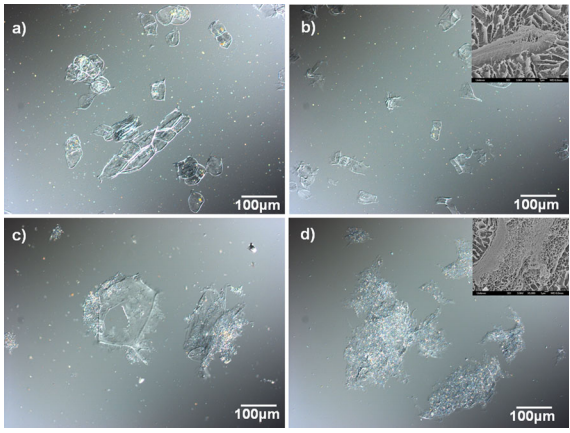Power laws in the elasticity and yielding of plant particle suspensions
Image for the paper "Power laws in the elasticity and yielding of plant particle suspensions"
P. Lopez-Sanchez, R. Farr
















The yielding and flow behaviour of plant suspensions are perhaps the most important rheological properties in process and product design for applications in paper, biofuel and food industries. Studies are reported here on the yield properties and flow behaviour of suspensions of plant particles with different shapes (clusters of cells, individual cells and cell fragments). Carrot and tomato were selected as model plant systems to prepare suspensions at particle dry mass concentrations ranging from 0.010 to 0.065. The flow behaviour was characterised by an apparent yield stress and shear thinning. The Herschel-Bulkley yield stress obtained from up and return flow curves was compared to the yield stress calculated from oscillatory measurements. The dependence of the yield stress values on particle dry mass concentration is approximately a power-law, with a fitted exponent of 3±0.5 for all the suspensions, independently of the plant origin and particle shape. This same power-law behaviour was found for the elastic modulus G′, and in this case the exponent was 3 for carrot and 4 for the tomato suspensions. The yield strain, calculated from oscillatory measurements, decreased slightly with dry mass fraction, but did not follow a power-law. We discuss possible explanations for power law behaviour, and provide a model for G′ based on folded elastic sheets, which predicts an exponent of 3, similar to the values obtained for these suspensions.